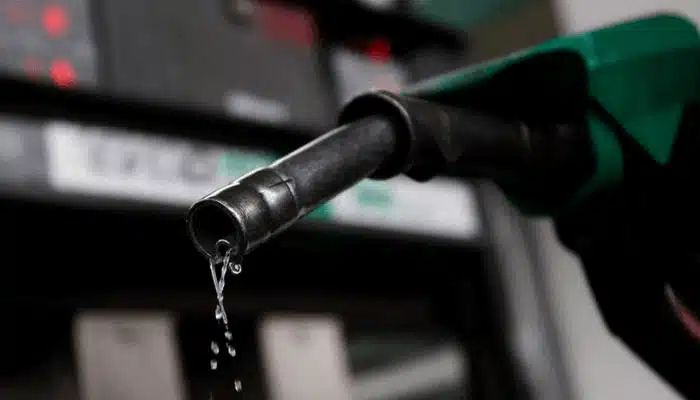The Nigerian Midstream and Downstream Petroleum Regulatory Authority (NMDPRA) alongside oil marketers have revealed that the prices of refined petroleum products are anticipated to experience a further reduction following the resumption of operations at the Warri Refining and Petrochemical Company Limited (WRPC). This comes as part of a larger effort to strengthen Nigeria’s domestic refining sector and reduce dependence on imported fuel products.
Oil marketers within the downstream sector have stated that the intensified competition between domestic refiners is expected to drive the price of refined petroleum products down, as these refiners will be working to attract more buyers by offering competitive rates.
This announcement comes after the Nigerian National Petroleum Company Limited (NNPCL) made a statement on Monday, confirming the resumption of operations at the Warri Refining and Petrochemical Company (WRPC), which has a refining capacity of 125,000 barrels per day. This marks a significant achievement in Nigeria's drive for energy independence and economic growth.

Petrol Price
[/figure]
NNPCL also announced plans to export locally refined petroleum products to international markets. This move is expected to generate foreign currency, further boosting the country's economy. The resumption of operations at WRPC follows shortly after the restart of the Port Harcourt Refinery, which has a refining capacity of 60,000 barrels per day.
In an inspection of the Warri refinery, NNPCL’s Group Chief Executive Officer, Mele Kyari, explained that the refinery was operational, although full repairs were not yet completed. Currently, the refinery is producing diesel, straight-run kerosene, and naphtha, with plans to resume production of petrol soon. President Bola Tinubu, in a celebratory statement, confirmed that the refinery is currently operating at 60% capacity, which is equivalent to 75,000 barrels per day. Kyari emphasized that the successful revival of WRPC positions Nigeria to become a net exporter of petroleum products, which could lead to economic diversification and long-term stability.
Kyari also mentioned that other parts of the Warri refinery, particularly those that produce petrol, will soon be operational, signaling even more positive developments in the refinery’s output. Additionally, Kyari highlighted that progress is being made on the revival of the Kaduna refinery, which is expected to begin operations soon, further bolstering Nigeria's refining capabilities.
Mustapha Zarma, the National Operations Controller of the Independent Petroleum Marketers Association of Nigeria (IPMAN), acknowledged that increased competition among domestic oil refiners would lead to price reductions for consumers. He expressed optimism about the government's efforts to restore local refineries and commended NNPCL for its role in revitalizing the country’s energy infrastructure. Zarma also mentioned that the reopening of the Kaduna refinery would add more capacity to Nigeria’s refining sector.
NMDPRA’s Chief Executive, Farouk Ahmed, echoed Zarma’s sentiment, highlighting that the government’s push for local refining has led to greater stability in fuel supply. He also pointed to the absence of fuel queues during the holiday season as a testament to the success of this initiative. Furthermore, Ahmed noted that the emergence of new modular refineries across the country would further reduce fuel prices, benefiting consumers and the economy as a whole.
Mohammed Shuaibu, the Secretary of IPMAN in Abuja-Suleja, emphasized the broader economic benefits of the Warri refinery’s resumption. He highlighted that the increased local production of fuel would reduce the country’s reliance on foreign currency to import fuel. This development, combined with President Tinubu’s directive for crude oil sales to the Dangote refinery to be conducted in naira, is expected to significantly enhance Nigeria's foreign exchange reserves, contributing to overall economic stability.
The Warri Refinery, which underwent an extensive rehabilitation project costing $898 million beginning in 2021, was originally commissioned in 1978. It underwent a major upgrade in 1987 to process 125,000 barrels per day. The revival of this refinery is seen as a key step in reducing Nigeria’s reliance on expensive fuel imports and in achieving energy self-sufficiency.
Earlier reports from Gistreel highlighted that President Tinubu praised the reactivation of the Warri refinery as an important milestone in his administration’s commitment to increasing local refining capacity. He expressed confidence in the ongoing efforts of NNPCL to restore all four of Nigeria’s state-owned refineries, urging the quick completion of repairs at both the Kaduna and Port Harcourt refineries. Tinubu's administration has placed a strong emphasis on energy independence and reducing Nigeria’s dependence on fuel imports, with the Warri refinery being a cornerstone of this policy.
With the successful operation of the Warri refinery, along with the Dangote refinery, which began operations earlier this year, Nigeria is making substantial progress toward achieving self-sufficiency in refined petroleum products. This development has already contributed to reduced fuel prices, and it is expected to continue improving the country's economic and energy security moving forward.

